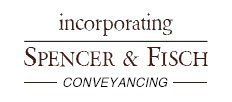What you need to know about the tenant’s repair obligation in a commercial lease
- By Stephen Taylor
- •
- 05 Feb, 2018
- •

As commercial property solicitors in Leeds, we are often asked about the extent of the repairing obligation that a tenant has in a commercial lease. It is better if you speak to your commercial property solicitor even as the lease is being drawn up to identify the state of repair, so you can avoid any disputes at the end of the agreement. Whether you are tenant or owner, there are a couple of things that you need to know.
Normally, there are two concerns that matter – one being the extent of repair and the other being the standard of repair. Your Leeds solicitor will have provided you with the commercial contract that outlines these two, and states that the tenant is required to keep the property in a good standard of repair. Some confusion can arise from this, and often commercial property solicitors in Colton will be called upon to define what “good” is, as it may not be clarified. Your Colton solicitors can add “substantial” or “proper” but the issues arise in the interpretation of these words. Most tenants will see the extent of repair covering the repainting the premises, and the landlord would expect to maintain the exterior and the common areas of the building, but where the problem arises is that, in a conventional commercial lease, the tenant is expected to carry out repairs within their area, from the beginning of the lease.
The UK courts have
stated that the standard of repair can be determined once a number of factors
have been taken into account. The age of the property, its character and also
the environment in which the property is located are all under consideration.
Thus if you have a house that was built in Colton five years ago, the standard
of repair would be considerably different than a Victorian property in Leeds.
For the older property, the style and materials used in the building are a
factor, whether in a new property this may not be a consideration. Commercial property solicitors in Leeds,
such as Castle Anderson Solicitors, have also been advised that the tenant’s
obligation includes elements of renewal.
This means that the tenant isn’t in a
position to argue that they aren’t liable for a covenant that covers full
repair, because of the age of the property. This is why a Schedule of Condition
should be drawn up and attached to the lease, at the beginning of the process.
This document will include descriptions and photographs of the condition of the
property when the tenant moves in. This will limit the tenant’s liability for
repairs as set out in the Schedule of Condition. However, the tenant is still
liable for normal repairs and could face a hefty bill from the landlord, or
refusal of the lease renewal, if these aren’t carried out.
So, if you’re looking for a commercial or corporate law solicitors in Leeds or Colton, simply make an enquiry today with Castle Anderson Solicitors by calling us on 0113 232 1919. We are experts in conveyancing in Leeds and Colton and cover all of your commercial law needs.


